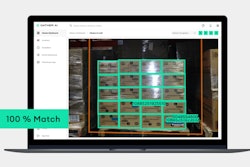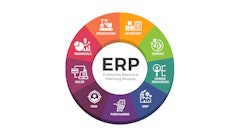
The logistics industry is on the cusp of a significant generational shift over the next five years. As the youngest Baby Boomer turns 65 in 2029 and elder members of Gen X approach retirement, Millennials and Gen Z are stepping into their prime working years.
Each generation brings unique and highly valued skills to the supply chain industry. Older generations possess deep-rooted institutional knowledge of how the industry functions, from operations, economics, and pricing strategies to an intuitive grasp of the supply chain’s nuances. This irreplaceable experience and institutional knowledge, earned over many decades, will continue to guide us as we navigate the future.
As digital natives, Millennials and Gen Z bring a fresh perspective, tech-literacy, and innovative ideas on how to drive the industry forward using new tools. Their skills are essential for an industry like logistics, which is now rapidly embracing digitization and new technology.
The next five years represent a unique moment of generational equilibrium when all these qualities will co-exist in the logistics workforce. This is a golden opportunity that the industry should seize.
Embracing AI
In recent years, the acceleration of artificial intelligence (AI) has sparked various predictions. While some feared it would disrupt the labor force, others saw its potential to transform business. AI is here, and it’s poised to revolutionize logistics, provided we feed it with strong data sources.
Every industry, including logistics, needs to start planning and experimenting with AI, leveraging its massive potential for productivity, and finding the entry points to its transformation of business operations.
The urgency of integrating AI is particularly relevant to logistics, which stands to gain significantly from its promises of productivity. As logistics rebuilds a more resilient global supply chain post-pandemic and navigates geopolitical disruptions, AI’s advanced real-time tracking, route planning, and other optimizations are invaluable assets.
Bridging the generational gap
In logistics, managing daily operations is essential, given the industry’s complexity and the need to adapt to changing plans and external factors. Moreover, blending intergenerational expertise could be a key differentiator in the successful deployment of AI strategies.
The industry needs a collaborative knowledge exchange that enhances both tech literacy and operational wisdom, spreading these core values – and the data that ensues - throughout organizations and shaping AI adoption plans and strategies. This approach empowers all to maximize AI’s benefits without losing our foundation. Such an exchange could manifest in various forms, like establishing AI committees within logistics companies. These committees, intentionally comprising both seasoned leaders and emerging talent, can bring together their diverse skills to develop strategy and begin experimenting with AI in ways that are both energetic and realistic, while collaboratively building data warehouses to fuel the AI engines.
Building resilient workforces
The brief pause before AI becomes widespread coincides with significant changes in workforce demographics. This opens a window to not only brace for AI’s influence but also to nurture a workforce that is diverse, resilient, and informed by the wisdom of multiple generations and experiences. Let’s seize this moment and shape the future of logistics together.




















